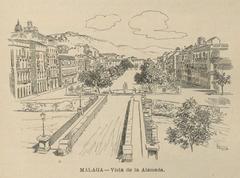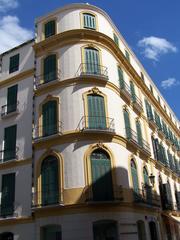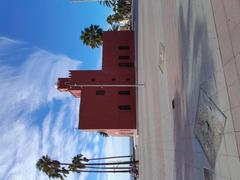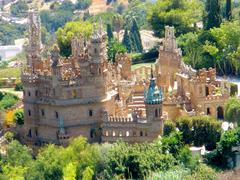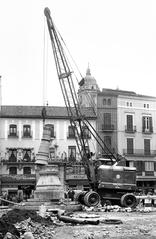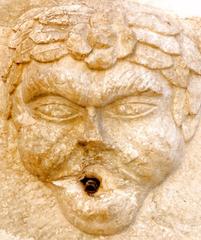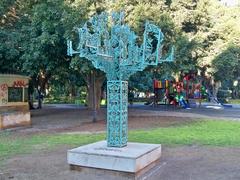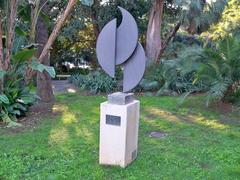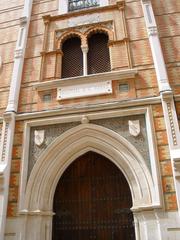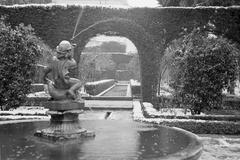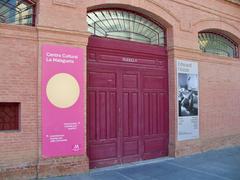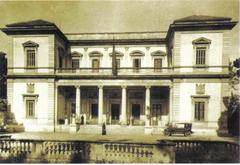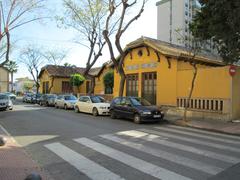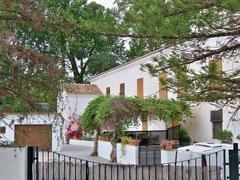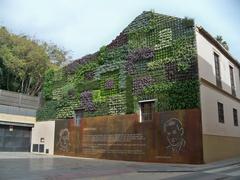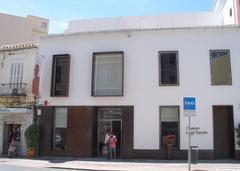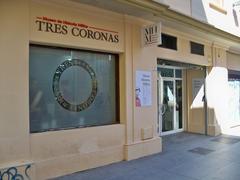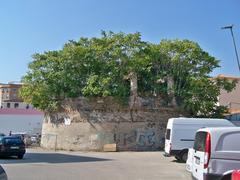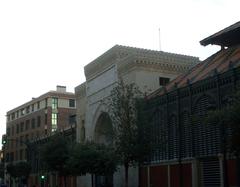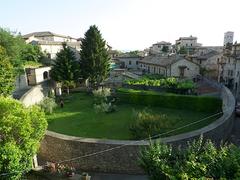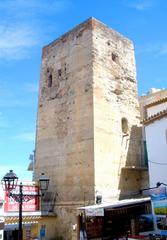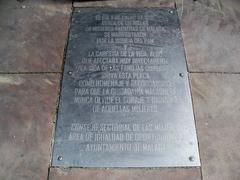Visiting Jardín Botánico Molino de Inca: Hours, Tickets, and Tips
Date: 18/07/2024
Introduction
Table of Contents
- Exploring Jardín Botánico Molino de Inca
Exploring Jardín Botánico Molino de Inca
Historical Background and Significance
The Jardín Botánico Molino de Inca, nestled in the heart of Málaga, boasts a rich history intertwined with the region’s industrial and botanical heritage. Its story stretches back centuries, encompassing periods of flour production, textile manufacturing, and ultimately, its transformation into the verdant oasis we know today.
The Industrial Past - From Mill to Factory
The site’s origins can be traced to the 15th century with the construction of a flour mill, known as ‘Molino de la Ciudad’ (City Mill). This mill, strategically positioned along the Guadalmedina River, harnessed the power of water for grinding grain, playing a vital role in the local economy for centuries.
By the 18th century, the mill underwent a significant transformation, evolving from a flour producer into a textile factory. This shift mirrored broader industrial trends sweeping across Europe, with Málaga emerging as a prominent textile center. The factory, known as ‘La Constancia,’ specialized in cotton processing and employed a considerable workforce, contributing significantly to the city’s prosperity.
A Botanical Rebirth - The Creation of the Garden
The late 19th century marked a turning point in the site’s history. With the decline of the textile industry, La Constancia factory ceased operations. However, the property’s fortunes took a new turn when it was acquired by the Loring family, prominent figures in Málaga’s industrial and cultural landscape.
Recognizing the site’s potential, Amalia Heredia Loring, a passionate botanist, envisioned transforming the former industrial space into a botanical garden. Her vision was brought to life with the help of renowned French landscape gardener, Jean-Claude Nicolas Forestier, known for his work on the gardens of Seville’s María Luisa Park.
Forestier’s design skillfully integrated the existing industrial structures, including the old mill and water channels, into the garden’s layout. This harmonious blend of industrial archaeology and lush vegetation became a defining characteristic of the Jardín Botánico Molino de Inca.
A Legacy of Biodiversity and Conservation
Over the decades, the garden flourished, amassing a diverse collection of plant species from around the world. Today, it stands as a testament to Amalia Heredia Loring’s vision, serving as a haven for biodiversity, a center for botanical research, and a cherished public space.
The garden’s significance extends beyond its aesthetic beauty. It plays a crucial role in plant conservation, housing several endangered species and actively participating in international conservation programs. Its research facilities contribute to the understanding and preservation of plant life, further solidifying its importance in the 21st century.
Visitor Information
Opening Hours and Ticket Prices
Visitors can explore the Jardín Botánico Molino de Inca during its designated visiting hours, typically from 9:30 AM to 8:00 PM daily. Ticket prices are reasonably set at €3 for adults, with discounts available for children, students, and senior citizens.
Travel Tips and Nearby Attractions
To make the most of your visit, consider arriving early to avoid crowds and enjoy the tranquility of the garden. Nearby attractions include the Málaga Botanical Garden and the historic center of Málaga, both of which offer additional insights into the region’s cultural and natural heritage.
Accessibility
The garden is wheelchair accessible, ensuring that visitors of all abilities can enjoy its beauty. Designated pathways and ramps are available throughout the garden.
The Garden Today - A Cultural and Historical Landmark
Today, the Jardín Botánico Molino de Inca stands as a unique testament to Málaga’s layered past. It offers visitors a captivating journey through time, from its industrial origins to its botanical rebirth. The carefully preserved remnants of the mill and factory serve as tangible reminders of the site’s evolution, while the vibrant flora speaks to the enduring power of nature and human passion.
The garden’s historical significance, coupled with its botanical richness, makes it a must-visit destination in Málaga. It offers a serene escape from the bustling city, inviting visitors to connect with nature, delve into the region’s past, and appreciate the delicate balance between human history and the natural world.
FAQ
What are the visiting hours for Jardín Botánico Molino de Inca?
Visiting hours are from 9:30 AM to 8:00 PM daily.
How much are the tickets for Jardín Botánico Molino de Inca?
Tickets are priced at €3 for adults, with discounts available for children, students, and senior citizens.
What are the must-see spots in Jardín Botánico Molino de Inca?
Must-see spots include the preserved industrial structures, the diverse collection of plant species, and the beautiful water channels integrated into the garden’s layout.
